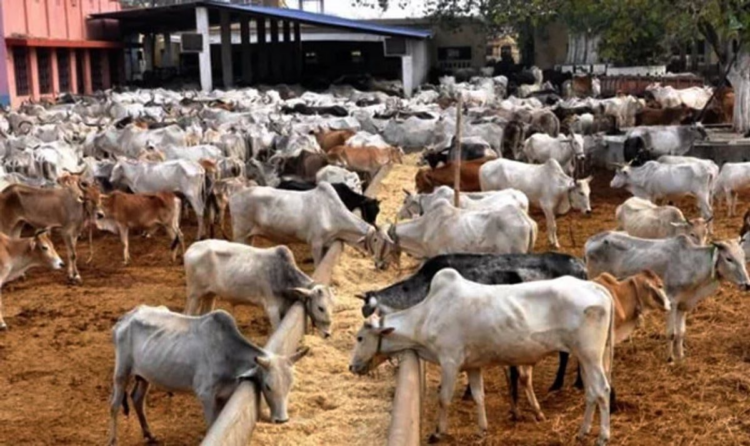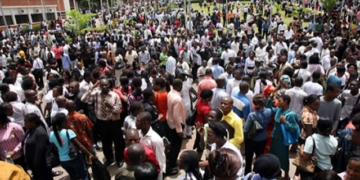As food inflation bites harder and official support systems remain scarce, rural livestock farmers across the FCT and parts of Nasarawa State are forming grassroot cooperatives—using ingenuity and mutual support to keep their animals, and their livelihoods, alive.
In dusty Zhidu village along Airport Road, Abuja, herders Umar Shagari and Alhaji Adamu Mohammed have begun pooling their resources to buy animal feed in bulk. With prices rising daily, they say it’s the only way to survive.
“Feed alone was eating all our money,” Shagari said, wheeling a shared cart into a dry pen. “We started buying together, and now we save more than N5,000 on each 50kg bag of feed.”
Between them, the group saves an estimated N20,000 to N30,000 monthly on feed alone.
Though they still rear their animals separately, the economic strain has pushed them into collaboration. When two of Shagari’s calves died last October, he said it nearly plunged his family into debt.
“We had nothing left—no feed, no help. That’s when I called Adamu, and we started buying together,” Shagari recalled.
Mohammed added, “We were losing animals because we couldn’t afford vaccines alone. But when we pool money, we can buy in bulk, negotiate better prices, and even hire one vet to treat all our animals.”
Across Karshi, Tungan Ashere, Keffi, and other rural areas, informal cooperatives, mutual savings groups, and knowledge-sharing networks are emerging as survival tools in the face of soaring costs for feed, vaccines, and transport.
“A 50kg bag of maize bran now sells for over N20,000. It’s not sustainable unless we share costs or swap ingredients,” said Halima Yakubu, who runs a small goat farm in New Nyanya.
Halima is part of the Women Livestock Exchange Circle, a WhatsApp group of over 30 women farmers who trade feed, organize transport, and share market tips.
Since joining, she says her feed and logistics expenses have dropped by nearly 40 per cent.
“Before, I spent nearly N40,000 monthly on feed and transport. Now I spend just under N25,000—that’s a big relief.
“We use it to warn each other about price hikes or unsafe transporters. Sometimes we even barter cassava peel for maize stalks,” she said.
Across the group’s 30 members, that adds up to estimated monthly savings of over N400,000.
In the Panda community, Karu LGA, another group of farmers recently partnered with a retired animal scientist to hold monthly training on indigenous animal health.
“We’re learning to make our own mineral licks, herbal dewormers, and stress relievers. It’s not perfect, but it saves money,” said Victoria Ojoh, a pig farmer.
Many farmers express frustration at being excluded from government livestock support.
“We hear about interventions on the radio. But they don’t reach us. That’s why we started helping ourselves,” said Musa Daudu, a cattle trader in Gidan Gona, Nasarawa.
Some cooperatives use traditional savings schemes like ‘adashe’ or ‘esusu’ to fund emergency animal care. Others rotate feed stock based on need or take turns traveling to urban centers to buy veterinary drugs in bulk.
Youth are also getting involved. In Karu, 27-year-old Shehu Ismaila runs Facebook groups where local farmers share contacts and tips.
“We’ve created small online hubs for ourselves. It helps us survive without depending on anyone,” he said.
Experts say these grassroots efforts could form the basis of a more sustainable livestock system—if recognised and supported.
“These farmer-led groups are a natural response to systemic failure. They need to be integrated into formal extension systems, not ignored,” said Dr. Abdulmalik Faruk, a livestock economist in Abuja.
As prices continue to rise and traditional grazing routes grow unsafe due to insecurity, rural livestock farmers are leaning harder into collective resilience.
“We may not have loans or government support,” said Ibrahim Musa, a livestock keeper in Tungan Ashere. “But we have each other—and that’s how we’re surviving.”











